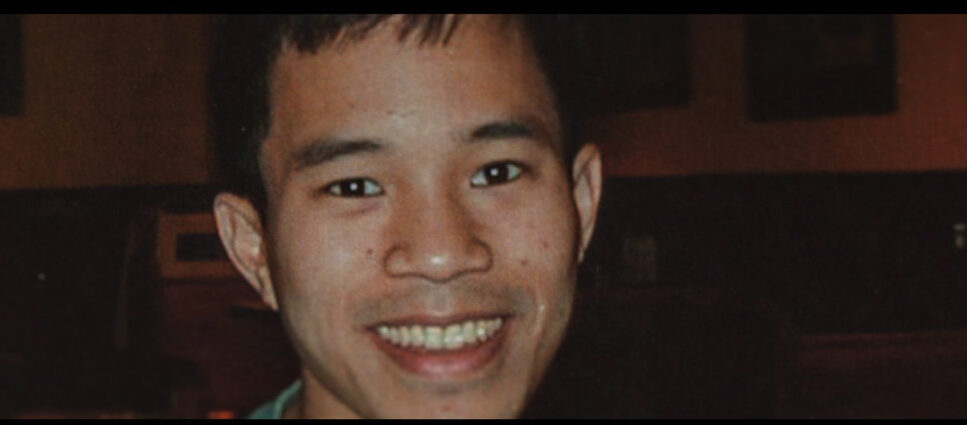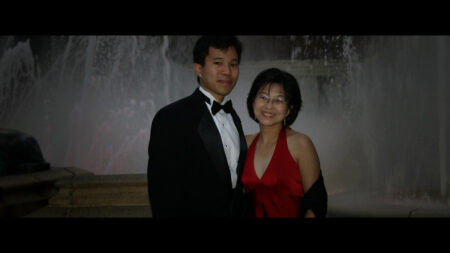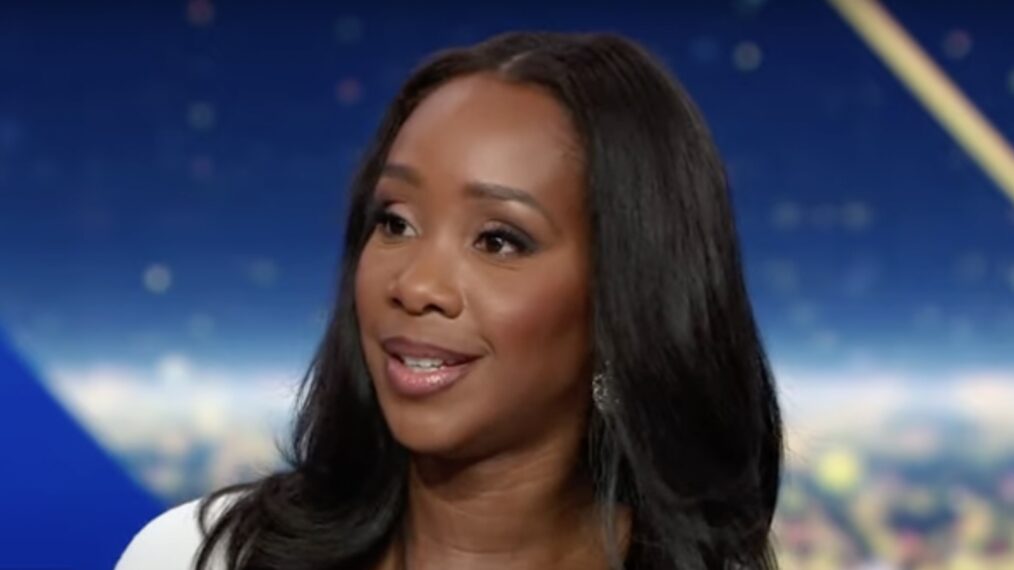‘Who Killed Robert Wone?’ Why Real-Life Murder Mystery Is Like a Game of ‘Clue’

Who Killed Robert Wone? It’s a question explored in the new two-part Peacock documentary centering on the unsolved murder of a Washington D.C. attorney in 2006.
Wone was found stabbed to death in the home of a friend he had been visiting. The house was shared by Victor Zaborsky and his domestic partner Joe Price and another man, Dylan Ward, with whom they were involved in a polyamorous relationship. When police questioned Price, Zaborsky, and Ward, they all denied any involvement and suggested an intruder may have broken in. Yet, there were no signs of a forced entry, a struggle, or that an individual had fled after the crime was committed.
Wone, who was by all accounts happily married, had been planning to spend the night at the house. BDSM items were found in Dylan’s room. An autopsy showed needle marks made to Wone’s body. A rape test came back with stunning results.
So what did happen in the house that night?
We caught up with director and Executive Producer Jared P. Scott on the twists and turns of a true crime case that he says is like playing a game of ‘Clue.’
How drew you to tell this story?
Jared P. Scott: It’s a fascinating story. On August 2, 2006, Robert Wone, a prominent lawyer and promising young man, decides to spend the night at a friend’s house he knew. Then 79 minutes after arriving one of the friends calls 911 and says Robert has been stabbed. From there the EMTs arrive and they just describe a strange scene. Then the detectives arrive and it gets even stranger. What caught my attention is its this Clue-like mystery. You have four people in the house that night. 79 minutes later one of those people is dead. The other three are saying, “Not me.” It’s a closed environment. Part of the story is there may have been an intruder entering that house…You have this black box mystery. We’re all fascinated by puzzles and mysteries. I think this is the ultimate puzzle. I always thought of it as an impossible puzzle…I think there is this natural drive we all have as storytellers and an audience where we have to figure out who did it and why they did it.
There is also the side of victim advocacy. We want to do right here for someone who by all accounts was a brilliant young, well-liked promising young man who had his life taken from him, and nobody has been held accountable. Justice has not been done. What we do as storytellers is have to think about victim advocacy. If we can spotlight this story, maybe someone can come out of the woodwork, 16 years later, and maybe someone has some information and can come forward and help solve this case.
I think having the actual questioning of the three roommates really allows the viewer to draw their own conclusion. You see their body language and how they respond. You also see the approach the investigators are taking with them.
Glenn Kirschner is the former prosecutor and this case is his white whale as he calls it. I think Glenn is a big driver of the story. It’s something he hasn’t been able to let go of after 16 years. This is the one that got away. It was important he helped the narrative because it’s so ingrained in him. We had this never-seen-before interrogation footage that was shown at trial. That has never been seen, aside from transcripts out there. You can see these guys on camera how they are reacting to the detectives.
What were the challenges of wanting to tell a balanced story without the input of Price, Zaborsky, and Ward?
You always want a balanced story but it’s tough in this case because the three roommates, suspects, have all had charges against them and were all exonerated. After that first night of questioning, they never spoke again. They didn’t speak to the media or at trial or the civil trial. We don’t know their story other than what was said in those interrogations that night. We worked that into the story…That during those 79 minutes, the only people who can tell us what happened in that time frame are Joe, Victor, and Dylan. We would love to speak with them, but we were not able to get that kind of access…We were only able to secure the defense attorney for Joe Price in Bernie Grimm. He is great, a legend in Washington D.C. Bernie has had a great standing in the D.C. criminal justice system. To have him shed his insights was invaluable. You get a bit of a point-counterpoint with Bernie and Glenn on the other side.

What did Wone’s widow think of your doc? Did she not want to participate?
We would have loved to have had Kathy in our show, but she ultimately declined to participate. I don’t want to speak for her, but from the people, we’ve spoken to, she is very quiet and very reserved. She is a very private person. She had to relive this so many times. This is what we have to think about as storytellers. I think she felt she didn’t want to be part of this story. We respect that.
As you did your research, was there anything that surprised you about the case you didn’t think about before?
When you research this case there are so many details. The mouthguard, the lack of blood, and all these little clues. At the beginning, I’m like, “How do we fit this all in?” What surprised me was you had so much speculation we had to take things that were speculative and put them to the side. It surprised me how many things I had to shy away from. Part of what makes the case so fascinating is all the speculative details. We had to be responsible storytellers and journalists here and leave it for the audience to follow up and talk among themselves…As the show goes it’s tough to work that in an arc, details we’re unable to fit in that piece. The ones we were able to focus on were absolutely mindboggling.
The focus is on the three roommates, but then there is Joe’s brother Michael who also had access to the residence
It introduces another possibility. That’s a classic murder mystery. Was there a fifth person there or a sixth person? No charges were brought against the brother. But there was a lot of discussion about the brother in the trial itself. Then we had to be careful of who was charged for what in this case. It’s one of those things where there are these circumstantial pieces and curiosities. The family member that you mentioned fits in that category. We just don’t know. The idea there had been someone else in that house that night is plausible, but we just don’t know what happened.
How did this process project compare to others you’ve done? What do you hope audiences gain from watching?
I think like all storytellers, our paths are long and winding. I’ve told stories about inequality, climate change, and injustice. This story to me is a true crime, but there is an idea of victim advocacy and seeking the truth and justice for Rober. I hope people walk away with a story that they are entertained by but then we also want to figure out what the heck happened. There is a hotline number at the end of the show. My hope is someone comes forward and says something and tells us something and gives us the clues to solve this case.
Who Killed Robert Wone?, March 7, Peacock





